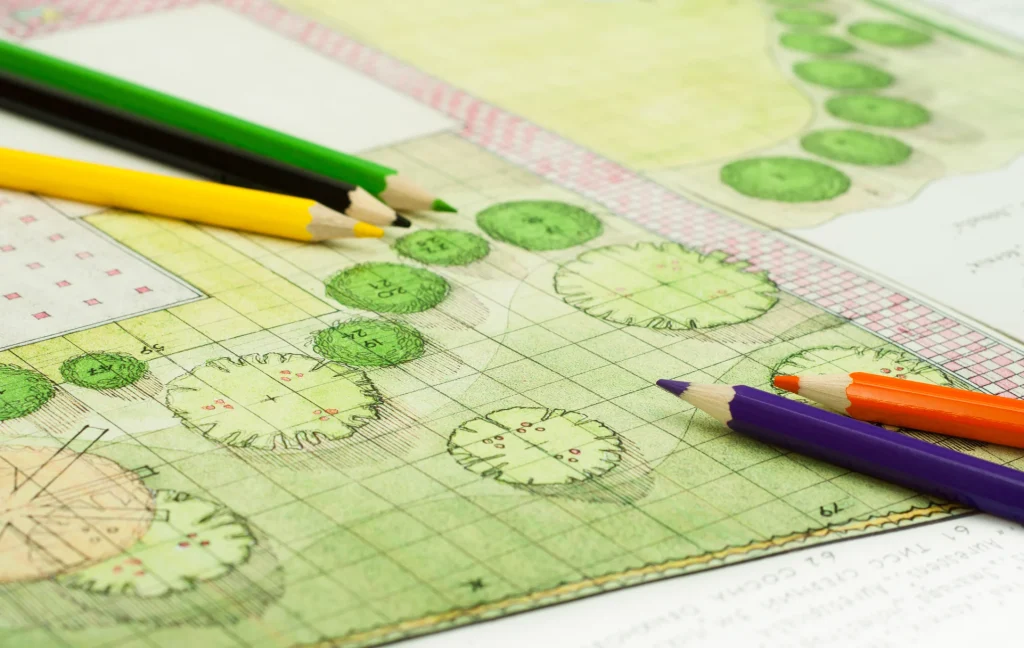Investing in landscaping projects is a great way to instantly improve the look of your business or commercial site. Clearing bushes and trees and adding grass or flowers can make a huge difference to your property value and curb appeal as well as bring in more customers. If you have already had hard landscaping or landscaping projects completed on-site, you may be wondering what landscaping maintenance you need to do.
Our guide will help you understand what tasks can help increase the longevity of your property.
Regular watering
Proper hydration is crucial for the health of your plants and lawn. Establish a consistent watering schedule, taking into account factors such as weather conditions, soil type and plant species. Invest in irrigation systems or use soaker hoses to ensure thorough and efficient watering.
Mulching
Apply a layer of mulch around plants and garden beds to help retain moisture, suppress weed growth and regulate soil temperature. Organic mulches such as wood chips or compost also enrich the soil as they break down, providing essential nutrients to your plants.
Pruning and trimming
Keep trees, shrubs, and hedges well-maintained by pruning them regularly. Remove dead or diseased branches, shape growth to maintain desired forms, and trim overgrown foliage to promote healthy growth and enhance the aesthetic appeal of your landscape.
Weed control
Stay vigilant against weeds, which can quickly overtake your landscaping efforts if left unchecked. Implement weed control measures such as hand-pulling, mulching or applying herbicides sparingly and strategically to prevent weed proliferation without harming desirable plants.
Fertilisation
Provide essential nutrients to your plants through regular fertilisation. Conduct soil tests to determine nutrient deficiencies and choose fertilisers tailored to the specific needs of your plants. Apply fertilisers according to recommended guidelines and avoid over-fertilisation, which can lead to nutrient runoff and environmental damage.
Lawn care
Maintain a lush and healthy lawn by mowing regularly at the appropriate height for your grass species. Aerate compacted soil to improve air and water penetration and overseed bare or thin areas to promote thick, dense turf growth.
Pest and disease management
Monitor your plants for signs of pest infestations or diseases, and take proactive measures to address these issues. Utilise natural predators, insecticidal soaps or horticultural oils to control pests, and practice proper sanitation and plant hygiene to minimise disease spread.
Seasonal maintenance
Adjust your maintenance practices according to the changing seasons. Prepare your landscape for winter by protecting sensitive plants, clearing debris and winterising irrigation systems. In spring, focus on tasks such as pruning, fertilising and refreshing mulch to kickstart growth and rejuvenate your landscape.
Regular inspections
Conduct routine inspections of your landscaping elements to identify any issues or maintenance needs promptly. Check for signs of damage, soil erosion, irrigation system malfunctions or other concerns that require attention, and address them proactively to prevent further problems.
Professional assistance
When in doubt or faced with complex maintenance tasks, seek assistance from landscaping professionals. Landscape contractors, arborists, and horticulturists possess the expertise and equipment necessary to tackle challenging maintenance projects and ensure the long-term health and vitality of your landscape.
If you need hard landscaping maintenance for your landscaping projects, get in touch with RKC Contractors Ltd today.

